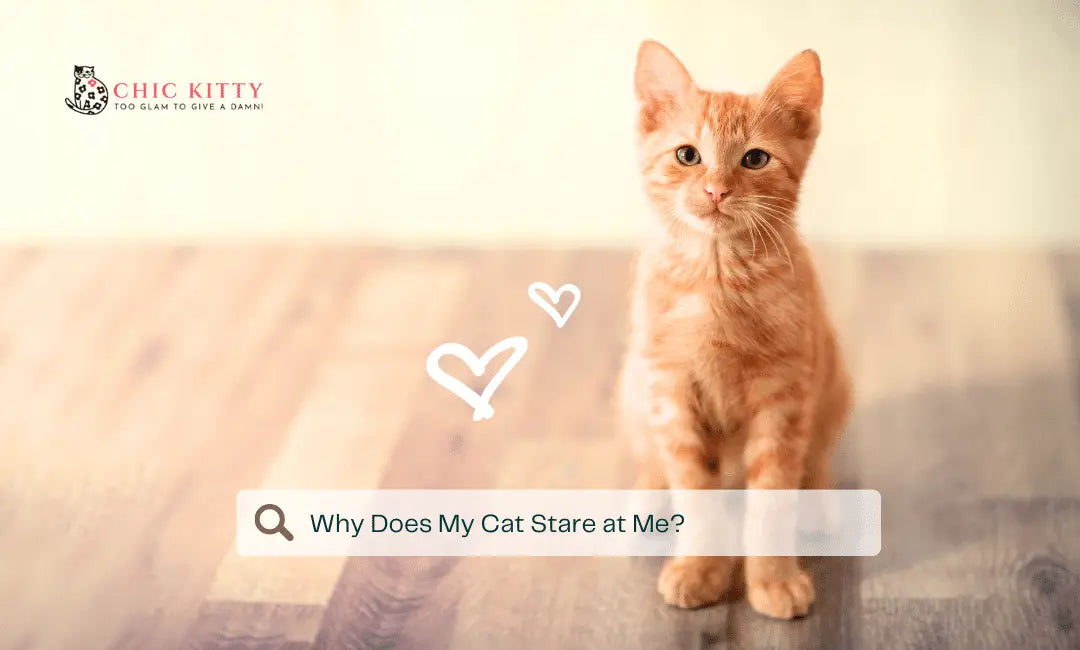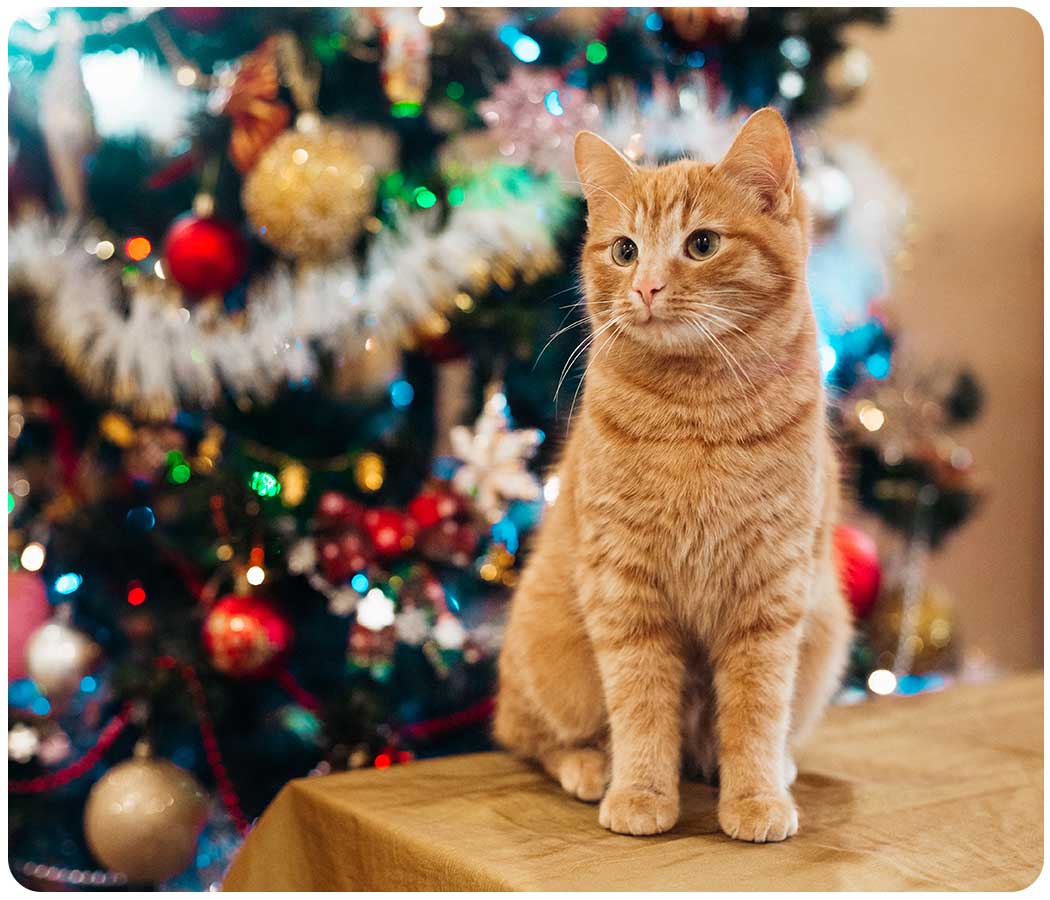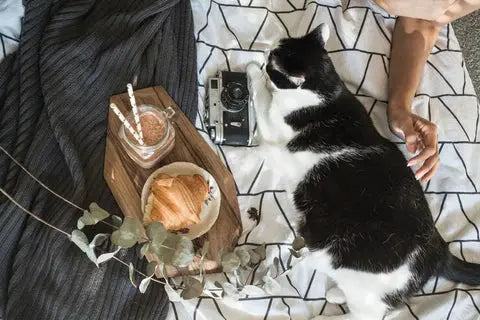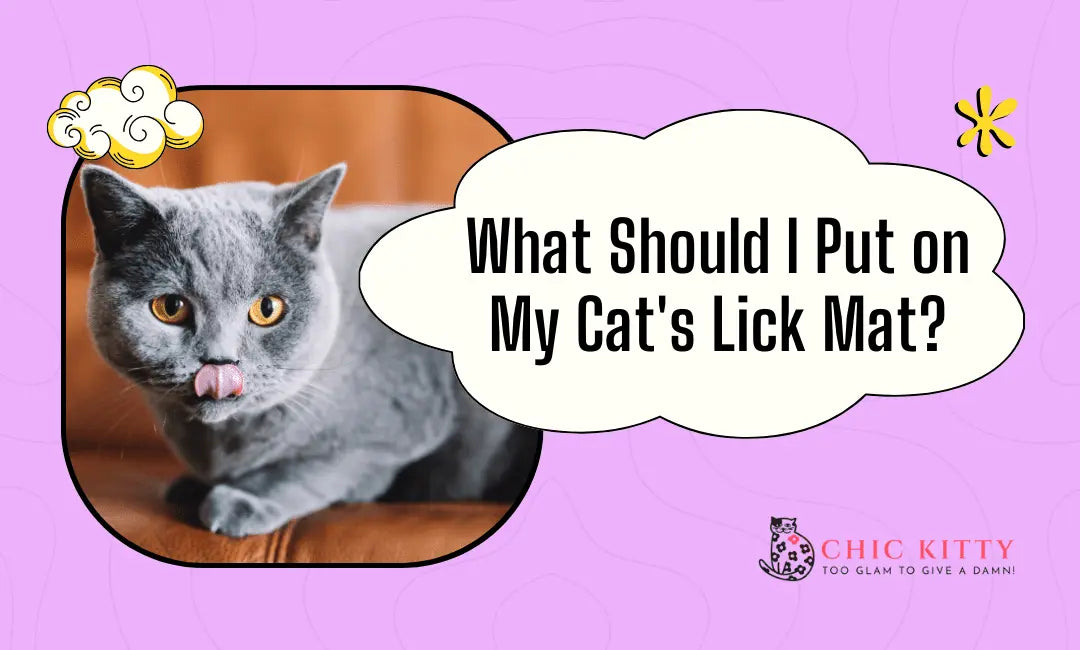
Why Does My Cat Stare at Me? Is It Love, Judgment, or Something Else?
Why Does My Cat Stare at
Ever catch your cat staring at you with those wide, unblinking eyes? It's a little unnerving, isn't it? Like their gaze pierces right through your soul. Are they judging your questionable outfit choice? Sending you telepathic love beams? Or maybe they're just plotting their world domination scheme...
Don't worry, we're here to decode your feline friend's intense stare. In this article, we'll cover:
- Affection: Could their gaze be a sign of love?
- Communication: Maybe they're trying to tell you something important
- Hunting instinct: Are you the unsuspecting prey?
- Fear or Anxiety: Is something stressing your kitty out?
- Health Concerns: Might the staring point to a deeper issue?
Affection: Could Your Cat's Stare Be a Love Gaze?
Cats may not be as outwardly demonstrative as dogs, but they have their own subtle ways of showing affection. Could those long, unblinking stares be their version of a warm hug? Here's why it's entirely possible:
Slow Blinks – The Feline "I Love You"
Observe your cat carefully the next time they lock eyes with you. Are their eyelids slowly opening and closing? Congratulations! You've just received a kitty kiss. Slow blinks are a sign of trust and contentment – your cat feels safe and loved in your presence.
Body Language Clues
Is your cat's posture relaxed while they gaze at you? Do you notice a soft tail swish, gentle purrs, or even a head tilt? These are all telltale signs that they're in a positive, affectionate mood.
Seeking Your Attention
Cats love a good cuddle or head scratch. Their stare might be a gentle reminder that it's been far too long since your last snuggle session. It's their way of saying, "Hey, human! Pay attention to me!"
Communication: Your Cat's Trying to Tell You Something

Our fluffy companions aren't fluent in English (or any human language, for that matter). But staring is a key part of their communication toolkit. Here's what they might be trying to say:
- "Feed me!": If the stare is accompanied by a trip to their empty food bowl, well, the message is pretty clear. Your cat is a master of the guilt-tripping pouty face.
- "Play with me!": Does their gaze turn into a hunting crouch, complete with a wiggling butt and dilated pupils? They're feeling frisky and want you to bring out the feather wand.
- "Something's wrong": Is the stare accompanied by tense body language or unusual vocalizations? Your cat might be feeling uneasy or in pain.
It's All in the Eyes
Pay attention to your cat's eyes during their stares:
- Dilated pupils: Could indicate excitement, playfulness, or possibly fear.
- Narrowed pupils: Might signal focus, concentration, or even aggression.
Understanding these nonverbal cues will unlock a whole new level of communication with your feline friend.
Hunting Instinct: Are You the Prey?
Don't let their cuddly exterior fool you – cats are natural-born predators. Even the most pampered housecat has those wild instincts lurking just beneath the surface. Here's why your cat's stare might have a touch of the hunter:
Practicing their Pounce
Cats are ambush predators, relying on stealth and surprise. They stare intently at their prey, calculating the perfect moment to strike. That intense focus could mean you're the target of their next imaginary pounce.
Imaginary Hunts
Just because your cat lives indoors doesn't mean their hunting instincts disappear. A speck of dust floating in a sunbeam, a bird outside the window – these can all spark their inner hunter. That unwavering stare could be directed at their imaginary prey.
Tapping into Playtime
Staring is a crucial part of the hunting sequence. Why not turn your cat's stare into a game? Grab a laser pointer or a dangly toy and let them unleash their predatory instincts in a safe and playful way.
Fear or Anxiety: Is Something Bothering Your Kitty?
While playful stares are adorable, sometimes a cat's intent gaze can signal something more serious: fear or anxiety. If you notice any of these signs, it's time to play detective and figure out what's stressing them out:
- Wide Eyes and Dilated Pupils: This is the classic "scaredy-cat" look. Their eyes are wide open, taking in as much information about their surroundings as possible.
- Rigid Body Posture: Are they hunched over, tail tucked, or ears flattened? These indicate a tense and fearful cat.
- Hiding or Retreating: If your normally social cat disappears the moment you enter the room, it's possible they see you as a threat.
Potential Stressors to Consider
- Changes in the Environment: New furniture, a house move, or even a rearranged room can throw a cat off balance.
- New People or Animals: The introduction of a new human or pet to the household can be very stressful.
- Loud Noises or Unfamiliar Smells: Cats have sensitive senses, and things we take for granted might be overwhelming for them.
It's important to address your cat's anxiety, as chronic stress can lead to both behavioral and health problems.
Health Concerns: When Staring Might Point to an Issue

Sometimes, a persistent stare isn't just about love or playfulness – it could signal an underlying health concern. Here's when you might want to consult your veterinarian:
Changes in Stare Intensity or Frequency
If your cat's staring behavior becomes unusually intense or frequent, it's worth getting them checked out. This could indicate an issue causing discomfort or disorientation.
Accompanying Symptoms
Keep an eye out for other changes in behavior or physical symptoms alongside the staring. These might include:
- Changes in appetite or water intake
- Lethargy or decreased activity levels
- Changes in vocalization or litter box habits
- Any unusual lumps, bumps, or other physical abnormalities
Possible Medical Causes
While staring itself isn't a diagnosis, it could be associated with various health problems, including:
- Hyperthyroidism: This hormonal disorder can cause increased alertness and restlessness, sometimes accompanied by staring.
- Cognitive Decline: Older cats may experience confusion, leading to unfocused staring or disorientation.
- Vision Problems: If your cat's vision is impaired, they might stare intently in an attempt to make sense of their surroundings.
Don't panic. It's possible your cat is perfectly healthy. But if you have any concerns, a vet visit will bring peace of mind and help identify any potential issues early on.
Conclusion: Time to Unlock the Mystery of Those Kitty Stares!
So, next time your feline friend gives you the look, you'll be a pro at decoding their gaze. Whether it's a sign of love, a playful challenge, or a hint of something deeper, understanding your cat's stares builds a stronger bond between you.
Remember these key takeaways:
- Pay attention to body language: It tells you just as much as those eyes!
- Context is key: Is it mealtime? Playtime? Or is something unsettling your cat?
- Slow blinks are kitty kisses: Return the love and deepen your connection.
- When in doubt, consult your vet: Rule out any health concerns.
Want to give your cat even more reasons to love you? ChicKitty has everything you need to spoil your furry companion. From personalized toys to cozy beds, our curated collections are designed to delight the most discerning feline. Browse our selection and make your cat's day.
FAQs: More Kitty Stare Questions Answered
Why does my cat sit on me and stare?
There are several reasons for this oh-so-common behavior:
- Affection: Cats are tactile creatures, and sitting on your lap is a perfect way to get close and soak up your warmth and love. The stare likely means they feel content and safe in your presence.
- Seeking attention: They may be silently demanding playtime, pets, or a tasty snack.
- Marking their territory: Cats leave their scent on you, reminding other pets (and people!) in the house that you're their human.
Why does my cat sit facing away from me?
This doesn't mean your cat dislikes you. Here are a few possible explanations:
- Trust: They feel safe enough to turn their back on you, knowing you won't pose a threat.
- Observation: They might enjoy watching the world go by from a comfy perch, even if your lap provides that perch.
- Temperature regulation: They could be adjusting their position to find the perfect warm spot.
Should I look my cat in the eyes?
It depends. Prolonged, direct eye contact can be interpreted as a challenge or threat by cats. Instead, try slow blinking – the ultimate gesture of feline love and trust. You may even get a slow blink back.




